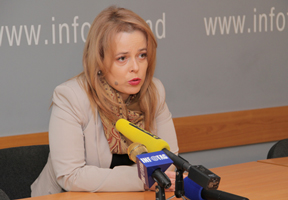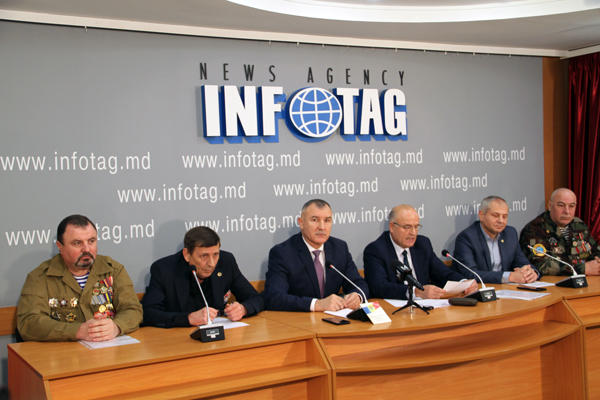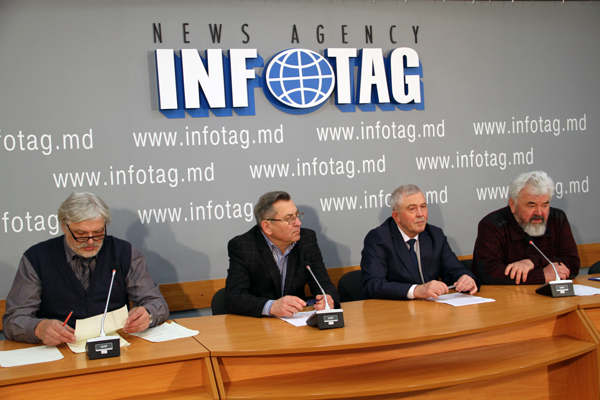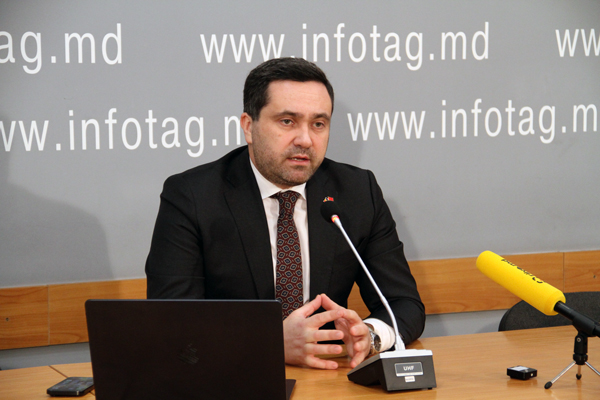Interview
THERE IS NO CLARITY IN ION BUTMALAI TRAGEDY – LAWYER ANNA URSACHI

In her interview with Infotag, Chisinau lawyer Anna Ursachi describes changes in the leadership of the Moldovan Bar Union and the progress of investigation into the death of LDPM parliamentarian Ion Butmalai.
Interview’s part 1. Forensic Examinations Indicate That Ion Butmalai Was Murdered.
Question: Mrs. Ursachi, the Moldovan Bar Union held its congress not long ago, at which the organization’s first-ever chairwoman was elected – Nina Lozan. How do you estimate your choice and the choice of your colleagues, and which perspectives are opening before the Union in this connection?
Answer: I welcome the fact that for the first time in over 2 decades of the independent Moldova’s Bar, this organization will be headed by a woman. I think we have made a correct choice. The thing is, the Bar Union is going through far from its best times, suffering a split trend.
Q: What kind of a trend?
A: You see, civil society organizations have appeared in Moldova lately calling themselves ‘human-right defenders’ after saying a couple of sentences at a rally. There is also another kind of human-right organizations, which defend the rights of refuges, mothers of many children or persons belonging to certain ethnic groups. Some heads of such organizations have the license of a lawyer.
I would like to underline here that the thinking of a professional human right activist differs from that of a lawyer. A civil activist is usually linked to a concrete problem, whereas a lawyer constantly solves a lot of questions – defends human rights, follows the observance of procedural norms, tackles criminal cases etc. In my understanding, a real lawyer, like a real medical doctor, bears responsibility for people’s destinies. Unlike them, people with a narrow thinking of human right defenders work in the framework of a different field – simply a petition, simply a picket, simply a rally for solving this or that collision. Feeling that they are not able to root themselves in the Union though they are in our ranks, they are trying to split up the organization from the inside.
I think that splits in such kind of an organization are impermissible. That’s why an inborn flair, intuition, tactfulness – the qualities intrinsic to a woman rather than to a man, should help Nina Lozan do what the Union really needs now – reconcile all the sides. That was the first criteria, proceeding from which I voted for Mrs. Lozan.
A second circumstance is her program – strict and clear to most Moldovan lawyers. Its chief advantage is the social package for Union members. This may sound strange, but we – defenders of citizens – are one of the most defenseless categories of citizens. We do not receive social allowances during maternity leaves, and lawyers receive very modest pensions. This situation needs to be changed.
And thirdly, Nina Lozan is an excellent professional, with a spotless reputation and a considerable length of active service.
Q: Concerning the loud case of murdering LDPM parliamentarian Ion Butmalai, four forensic examinations have been carried out by the Prosecution service, but the picture of the tragedy has not become clear. Who do you think is interested in dragging out of the investigation?
A: Really, the four completed forensic examinations failed to pour light on the picture of Butmalai’s death. The civil society, relatives, lawyers and prosecutors were looking forward to hearing the conclusion of the forensic experts, but their conclusion only confirmed the suppositions offered by journalists yet in December 2014 – that the Butmalai case would be dragged out in every possible way. Now we see we were mistaken when we were saying that an expert examination is a science, and that sciences always take long and hate fussing. Forensic science must add clarity, but this rule appears to be not always working in Moldova, at least not in the Butmalai case. The conclusions of the said 4 examinations only added confusion in the situation.
The only conclusion from all what was presented to us is making me think that it was a murder. Having scrutinized all materials, I eventually arrived at a conclusion that it was not a contract killing. It was not the job of a sniper or another type of a hired murderer. The investigation has established that over last weeks and days before the tragedy, Ion Butmalai had been in active contacts with Liberal Democratic Party representatives. The essence of what the Liberal Democrats wanted from him was to stop being so active and noisy in his public activities. In particular, the investigators fixed telephone talks between Butmalai and LDPM leader Vlad Filat, between him and LDPM Deputy Chairman Valeriu Strelet and with other party activists.
Infotag’s dossier: Last December 9, MP Ion Butmalai was found dead in the garage of his house in Cahul town. On the same day, the Deputy Minister of the Interior and Head of the MoI National Investigation Inspectorate, Ion Bodrug, stated to the press the parliamentarian had committed a suicide. However, many people regarded the MoI story as inconsistent because two cartridge cases were found near the dead body.
Ion Butmalai was known for his stiff accusations against some Moldovan politicians. Shortly before the November 30 parliamentary elections, the parliamentarian (who was not included into the LDPM ticket for the 2014 polls) stated in public several times that he was going to convene a news conference and make loud disclosures at it.
According to an Infotag source in law enforcement agencies, one of credible versions of the tragedy was that the shooting which took place between the deputy and unknown people last December 9. The investigators presume that on that day those people came to Butmalai and tried to talk to him is a tough form. The parliamentarian, who had been in an extremely nervous condition for quite long by that moment, was the first to take out his gun, but failed to be the first to shoot.
Interview’s part 2 of 2. Renato Usatii Was Withdrawn From Parliamentary Elections For Invented Reasons.
Q: Mrs. Ursachi, a court recently arrived at a conclusion that a part of the accusations, due to which the Patria Party led by businessman-turned-politician Renato Usatii was deregistered from the November 30, 2014 parliamentary elections, did not exist as such. Do you think Usatii will be seeking justice now?
A: Let me illustrate the situation with another example. In the recent noisy case on picketing a Chisinau hotel belonging to business tycoon Vlad Plahotniuc by “Our Home is Moldova” party, the court decision on prohibiting the picketing was taken yet one our before the event. Moreover, the decision appeared in the evening, well after the end of a working day. This is an illustration of the quality of the Moldovan judiciary system and of how justice is administered in this republic. The thing is, the country’s whole judiciary is in the pocket of the said gentleman. Due to him, one of the main constitutional rights is defied in Moldova – the right to express one’s opinion, the right to protest and to a fair trial.
Concerning deregistration of the Usatii-led party only 3 days before the parliamentary elections, I can say that the court decision on deregistration was subsequently recognized as unlawful. Let me remind that at the end of November, the MoI General Police Inspectorate drew up 5 administrative cases. Each of them contained accusations that the Patria was allegedly receiving money from offshore zones for election campaign needs. But those accusations were a blatant lie from the first to the last word!
Nevertheless, all the fake administrative cases were brought to “a logical end” in the Moldovan court. Having taken for granted what actually did not exist, the judges voted for excluding the Patria Party from the election campaign. That verdict was immediately confirmed by a higher judiciary instance – the Supreme Court, thus presenting one more paradox of the Moldovan judiciary.
But already in the spring of 2015, the Sectorul Centru Court of Chisinau passed a decision on closing down three of the above-mentioned 5 administrative cases against Patria Party due to the absence of the breach of law and because it was impossible to sue a political party as a subject of the case. In plainer words, the judges arrived at a conclusion that, firstly, a political party simply may not be accused of what it was accused of, and, secondly, the very reason of the accusation is simply absent as such.
The Supreme Court thus withdrew the Patria Party from the elections on the basis of 5 administrative protocols that had not undergone a law-stipulated check before the party removal. This means that the party was deprived of the right to take part in elections under an absolutely invented pretext. That’s why we, the Patria case lawyers, shall be challenging in all courts, including in Europe, the decisions passed in Moldovan courts against Patria – up to the last word and last coma, to restore justice.
Q: One of the representatives of our incumbent authorities recently called the court judgment on the case of Nicolae Vicol, ex-director of the National Tax Inspectorate Director, “a bright illustration of how Moldova is combating corruption at the top level”. Do you agree with this?
A: The story with Nicolae Vicol is a bright reflection of the ambiguous activities of Liberal Democratic Party Chairman Vlad Filat as Moldova’s prime minister. The country’s chief tax inspector, acting willfully or by coercion, used to fulfill Filat’s orders. All corruption moments in the Vicol case were poorly proved by prosecutors, in particular by the head of the investigation team Adrian Popenco. The prosecutors did not reveal crimes as such – only proved the dubious character of relationship between the prime minister and his subordinate, thus demonstrating how rotten the entire state system has been in Moldova, if governmental decisions are taken depending on what order you receive by telephone.
As for other loud cases of corruption among top-level officials – the cases of Chisinau airport, siphoning off money from three problematic banks and some other – I hope they will eventually become the subject of a professional investigation. But what is happening now is not inspiring optimism. The main persons on the Banca de Economii (BEM) case – Ilan Shor, Grigore Gacichevici, members of the BEM Administrative Board and Council – are all at large.
Q: Is your participation in the Civil Platform “Demnitate si Adevar” [DA, “Dignity and Justice”] the continuation of your professional career with transition to politics, or is it a desire to improve the situation in the country? Can the Platform become a unification project for all national minorities?
A: My work as a DA activist is really my ardent desire to change something in our country, where the rule by a handful of oligarchs has become just unbearable. I’ve been in active politics since the autumn of 2014, when I accepted an offer by the Liberal Reformist Party and become an LRP candidate for parliament. That’s why I cannot become a full-fledged DA member: the Platform founders are people outside politics, and the Platform is called civil. But my heart and soul are next to these wonderful honest people – real patriots of Moldova, no matter what the media close to authorities are speaking of them. As for the bar profession, it is my love, my vocation and my main professional activity.
Infotag: Thank you very much for your interview, Mrs. Ursachi.
























Add Comment